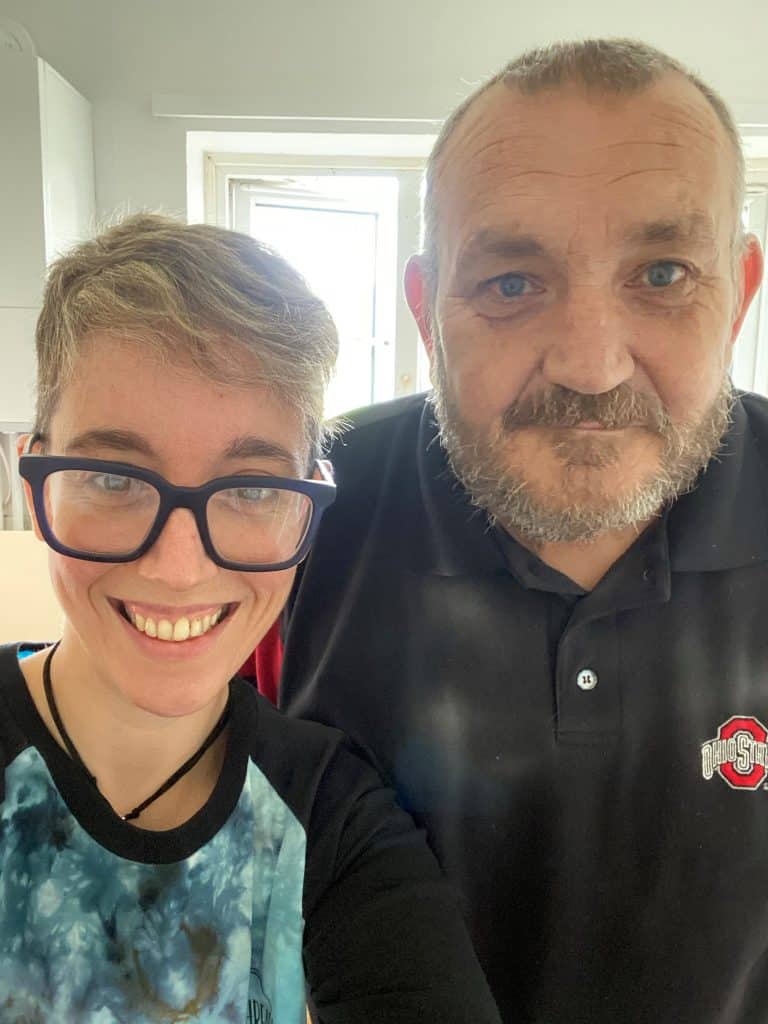Life-saving project needed now more than ever
To mark Suicide Prevention Day we hear from Paul who, after losing everything, including his home, considered suicide and now thanks to the Hope Project is back on his feet with a roof over his head and keen to talk about his experiences.
Paul was a self-made millionaire, but because of undiagnosed mental health difficulties, he ended up living on the streets.
“When I was growing up and even as an adult, men didn’t speak about any mental health problems, men never cry and men never show fear. That’s how it was for me. And I didn’t know I could get help.
“Every time I got to the top, I threw it all away. I lost my family, my home and on the streets I lost my dignity and I lost my will to live.”
Now after working with Ezra, his Hope worker, he’s sorted his debts, got back on his feet and moved into a flat of his own.
“Thanks to Ezra and the Hope Project I got diagnosed with bipolar and I now understand why I felt like I felt. To have someone to talk to, to help you and not judge you was amazing. She’s saved my life. I now have my own home, I can’t believe it. “
Over the last two years Hope has worked with 400 men. A report from the University of Bristol which looked at the project over six months found that the project helped reduce suicidal thoughts and self-harm by 50%* .
Increased demand
But since Covid-19 the demand for Hope’s services has soared. The project is now supporting twice as many men, any yet the demand is set to get higher as the mental health effects of the pandemic kick in. The local NHS commissioning group says mental health need will increase by a third this Autumn.**
Hope, which works with men aged 30-64, offers short-term emotional and practical support – usually eight sessions with a Hope worker. By building strong relationships with clients, as well as offering expert money and debt advice, the project is seen both as life-saving and life-changing.
Paul had never been supported by a professional mental health service before. Now that he’s got his own front door, he says he can start a new life and it’s all because of the help he’s had from Hope. Paul’s enthusiasm is infectious. He says:
“The best thing of all? Is to have a bath. I love a bath. And when I got here I sat in the bath for four hours. I was just as happy here as I would have been anywhere!”
Hope’s funding is due to end next April.** This is worrying as we know demand from people like Paul is set to rise further as more people lose their jobs, homelessness becomes an issue and the recession starts to bite.
Paul was invited on the Emma Bitten show on BBC Radio Bristol talking about his life changing experience. He was joined by Hope manager, Marina who talked about the project more generally. Listen here. Paul’s interview starts at 1:36:21 and Marina’s at 2:34:59

*A six-month evaluation of the project by researchers from the University of Bristol found that Hope clients’ suicidal thoughts and self-harming fell by from 95.3% to 45.7%.
**A report by the Local Government Association and the Centre of Mental Health noted the CCG’s estimate about mental health need.Our place: local authorities and the public’s mental health around improving the mental health of our communities and reducing inequalities. See p17 to reference to BNSSG CCG It says: “Modelling has predicted a 30% increase in mental health problems over the next 2-5 years” www.centreformentalhealth.org.uk/our-place
***The Hope Project is funded until April 2021 by Department for Health and Social Care, Public Health England (PHE) and NHS England as part of the Government’s national suicide prevention investment initiative
